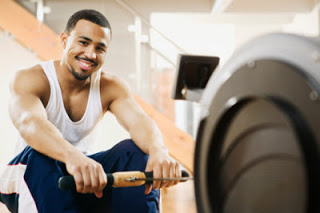The National Sleep Foundation‘s 2013 poll released this week found a compelling association between exercise and getting a good night’s sleep.
Christopher Kline, Ph.D., a postdoctoral scholar at the University of Pittsburgh School of Medicine Department of Psychiatry, was part of a five-member task force charged with coming up with the poll questions, interpreting the results and evaluating the findings. �
The 2013 Sleep in America® annual poll interviewed 1,000 adults in the U.S. between the ages of 23 and 60, and found that:
- Self-described exercisers reported better sleep than self-described non-exercisers even though they say they sleep the same amount each night (6 hours and 51 minutes on average during the week).�
- Vigorous, moderate and light exercisers are significantly more likely to say “I had a good night’s sleep” every night or almost every night on work nights than non-exercisers (67 percent to 56 percent vs. 39 percent).
- Vigorous exercisers are the least likely to report sleep problems.
- More than three-fourths of exercisers (76 percent to 83 percent) say their sleep quality was very good or fairly good in the past two weeks, compared to slightly more than one-half of non-exercisers (56 percent).
- Non-exercisers tend to be more excessively sleepy than exercisers.
- Approximately six of ten non-exercisers say they rarely or never have a good night’s sleep on weeknights.
- One in seven non-exercisers report having trouble staying awake while driving, eating or engaging in social activity at least once per week in the past two weeks.
- In exercisers, the risk of sleep apnea (a medical condition where people stop breathing during sleep and that increases the risk for heart disease and stroke) is half that of non-exercisers.
- Contrary to common perception, the poll found that the time of day you exercise doesn’t affect your sleep patterns.
Unfortunately, a lack of sleep can make people less inclined to exercise. No exercise and not enough sleep can turn into a vicious cycle, says Dr. Kline.
So, what can you do to start sleeping better? Dr. Kline says making small changes, such as incorporating a short 10-minute walk into your day, can make a huge difference. Although vigorous exercise is best, even light exercise is better than nothing.








